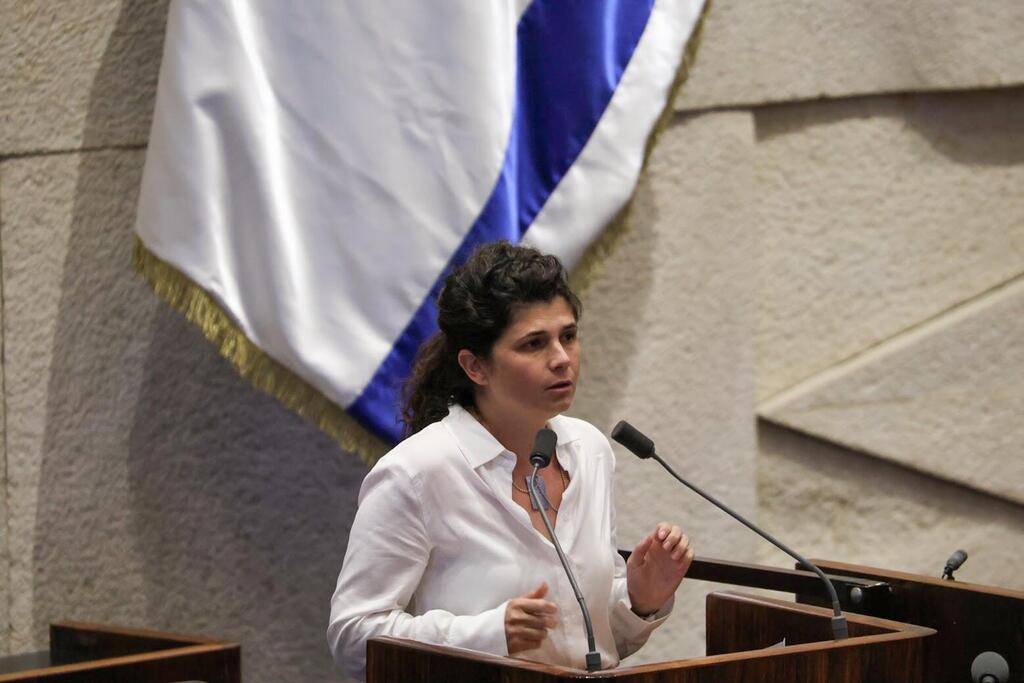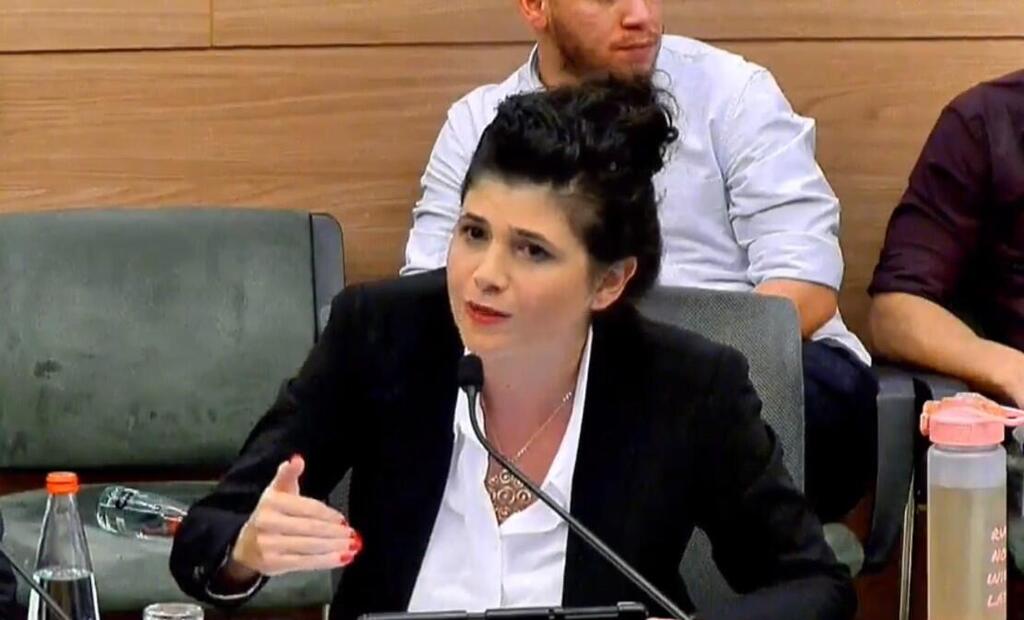Getting your Trinity Audio player ready...
Israel and the West may be facing the early stages of a third world war—a clash not only against groups like Hamas and Hezbollah but one that pits radical Islam against Western civilization.
"This is a cultural and religious war, with Israel on the front lines," MK Sharren Haskel told ILTV News in an exclusive interview for its new podcast last week.
Haskel, known by some internationally as Israel's "Minister of Hasbara" or public diplomacy, didn't hold back on what Israel's response to Iran might have looked like if she were prime minister.
Over the weekend, the Israeli air force struck several Iranian military sites across multiple cities in response to a recent Iranian attack, which launched over 180 rockets toward civilian areas in Israel on October 1. Haskel said she would have prioritized targeting Iran's economic lifelines and nuclear reactors to prevent the country from achieving nuclear weapons.
Analysts suggest that Israel's recent strikes might ease future actions against Iran. However, Israel refrained from hitting nuclear facilities, oil refineries, and other infrastructure at Washington's request.
"Imagine those missiles they sent toward Israel with nuclear warheads," Haskel said. "What would happen? Israel wouldn't exist."
She stressed that Iran operates through proxies worldwide, not just in the Middle East, while the international community "chooses to completely ignore it."
"You'll either fight them when they're small, with fewer casualties, or you'll face them when they have nuclear capabilities, with tens of thousands, if not millions, of victims," Haskel warned. "And it won't just be Israelis—it will be British soldiers, American troops, French forces, German forces."
On Monday, the Knesset was set to vote on two bills related to the United Nations Relief and Works Agency (UNRWA). One bill would make it illegal for Israeli officials to cooperate with the organization, while the other aims to restrict UNRWA's operations in Jerusalem.
Haskel founded the UNRWA caucus nine years ago when she entered the Knesset. Her goal was to develop an alternative for serving Gaza's population and Palestinian refugees in the West Bank, Jordan, Syria, and East Jerusalem. Only after the October 7 massacre, when Israel uncovered direct ties between UNRWA and Hamas, did the country move to designate it a terrorist organization.
According to Israel, around 10% of UNRWA employees are linked to Hamas. Haskel told ILTV that UNRWA provides services typically offered by a government, like education, healthcare, housing, and infrastructure.
"UNRWA even provided the street sweepers," she said. "Over the years, they let Hamas take over, manage, and run the organization, using it for their own purposes."
Israel has shown that Hamas was using UNRWA schools and other buildings to conceal terror infrastructure. Some of UNRWA's teachers and doctors were found to be directly linked to the October 7 attacks or involved in holding hostages. Now, Haskel is calling on Israel and the international community—including the Abraham Accords countries, Saudi Arabia, the European Union, and the United States—to replace UNRWA with a new program that offers similar services. She is also advocating for a comprehensive overhaul of the UNRWA education system, which she says promotes hatred toward Israel and Jews.
"If we want to change our future, it has to start with education," Haskel said.
'One of the soldiers'
Since October 7, Haskel has traveled around the world, speaking in parliaments across five continents and giving interviews to major media outlets. As head of the Knesset Christian Allies Caucus, she has connected with parliamentarians who support Israel through their faith. By educating them about UNRWA and Israel's position, these allies can advocate for Israel among other lawmakers.
She said that, beyond the physical war, Israel faces another battlefield in media and social media.
"For me, I feel with my position, I'm one of the soldiers to fight this fight for Israel," Haskel said. "Our family members are fighting on the front line, and my job is to fight those lies in the media and social media… and to tell [the world] about the real Israel."
Haskel believes that being a woman and a young mother of three children under four makes her relatable to the politicians and journalists she meets.
Her fluent English also helps. Haskel lived in Australia for almost seven years, where she studied to become a veterinary nurse and worked at a clinic that rescues, treats and releases wildlife back into nature.
"It was a completely different life, and I loved it," she admitted. "But I made a conscious decision about where I want my life to be, where I want my kids to grow up, and to recognize the incredible miracle our country is."
She lamented that the government and other relevant bodies still don't coordinate well enough to effectively fight for Israel in the media and on social platforms. While she acknowledges it's better than in past operations, she feels there's still room for improvement. She also knows that the job is far bigger than her alone. Still, she believes every small victory matters.
"I have a responsibility," she said. If I know I'm capable of doing this, I have to do it. It's part of my obligation." Although she feels guilty about not always being home with her young children, she understands that her work is helping to build a safer Israel for them in the future.
"After October 7, I was shocked to my core," Haskel admitted.
She shared that she learned about year-old twins who watched as their mother was killed in front of them and were then left to cry for hours—set as a trap by Hamas. Anyone who heard their cries and entered would be ambushed.
"As Israeli mothers, we carry those tragedies and those horrifying stories," Haskel said. "I would go to my girls' room every few hours to check that they were okay during the night. I would sleep with my gun under my pillow, and every noise—a motorcycle or something else—would make me run to the window and look. This is our mission: to protect our babies, our children. And as a leader of this country, I have a responsibility to all of these children to make it safer, to make sure that something like that will never, ever, ever happen again."
She added, "For that, many changes need to happen. I'm only one, but with God's help, this is going to be my life's mission: to make sure that Israel is safe and secure and that something like that will just never happen again to any Israeli child."
She stated that the war with Gaza cannot end until all the hostages come home. However, since the assassination of Hamas leader Yahya Sinwar earlier this month, she is more optimistic that this could happen.
Haskel expressed hope that, in the end, Israel can still live in peace with its neighbors.
"If we work together, understanding how we need to resolve the problem and build a different future, I believe we can do that," Haskel concluded.
Although she acknowledged that, for now, Israel must stay in control of security in Gaza and at the border, she believes that in two or three generations, "there could be a Palestinian leadership that will want to look after its people and that will be capable of doing that well."



